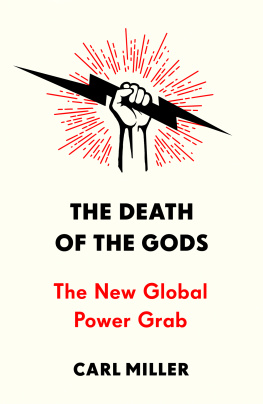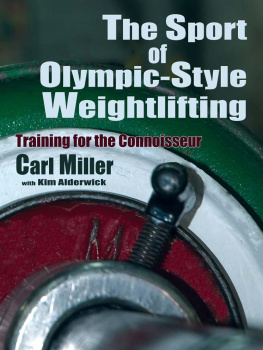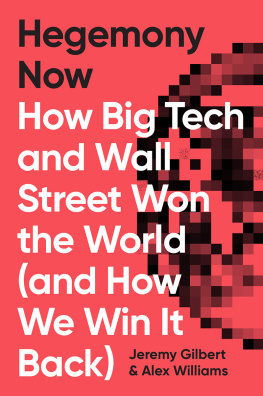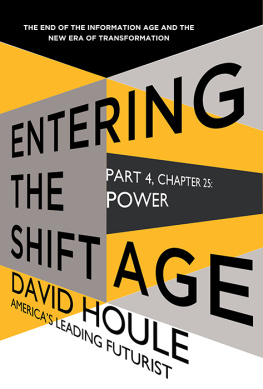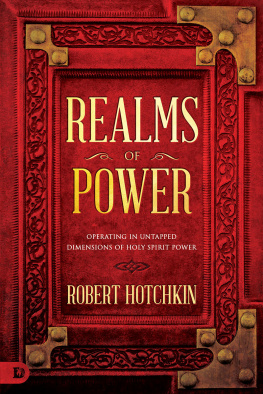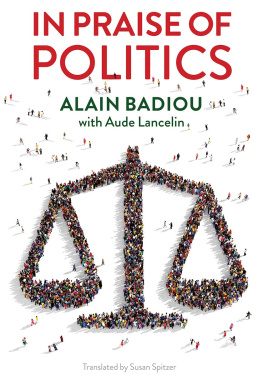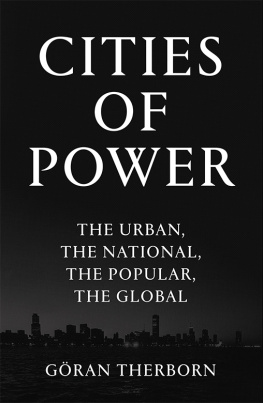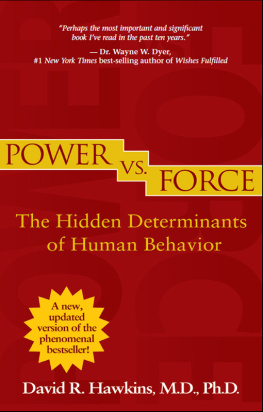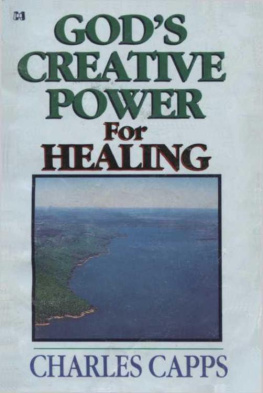CONTENTS
ABOUT THE BOOK
Magisterial a tour de force. Anthony Giddens
Essential reading. Jamie Bartlett
Prepare to be terrified, exhilarated and occasionally inspired. Catherine Mayer
Timely and incisive. Greg Williams, Wired
A groundbreaking examination of the new centres of power and control in the twenty-first century.
The old gods are dying. Giant corporations collapse overnight. Newspapers are being swallowed. Stock prices plummet with a tweet. Governments are losing control. The old familiarities are tumbling down and a strange new social order is rising in their place. More crime now happens online than offline. Facebook has grown bigger than any state, bots battle elections, technologists have reinvented democracy and information wars are breaking out around us. New mines produce crypto-currencies, coders write policy, and algorithms shape our lives in more ways than we can imagine. What is going on?
For centuries, writers and thinkers have used power as a prism through which to view and understand the world at moments of seismic change. The Death of the Gods is an exploration of power in the digital age, and a journey in search of the new centres of control today. From a cyber-crime raid in suburbia to the engine rooms of Silicon Valley, and from the digital soldiers of Berkshire to the hackers of Las Vegas, pioneering technology researcher Carl Miller traces how power the most important currency of all is being transformed, fought over, won and lost. As power escapes from its old bonds, he shows us where it has gone, the shape it now takes and how it touches each of our lives.
Astounding opportunities are at our fingertips. But are we more powerful as individuals than ever before? Or more controlled?
ABOUT THE AUTHOR
Carl Miller co-founded The Centre for the Analysis of Social Media at Demos in 2012 and has been its Research Director ever since. He has researched and written widely on how technology is changing society, including for Wired, New Scientist, the Sunday Times, the Telegraph and the Guardian. He is a Visiting Research Fellow at Kings College London.
For my family.
Its newest member, my nephew Freddie, was born pretty much the day I started writing. I hope you find this in an attic sixty years from now, and that itll make you either laugh or cry.
For know that no one is free, except Zeus.
Aeschylus, Prometheus Bound
INTRODUCTION
The Death of the Gods
A MAN IS holding a knife to my throat as I hold a knife to his. Im in a penthouse apartment, at the home of one of the worlds leading technologists. Outside I can see the lights of south London glitter. A bolognese is quietly bubbling away in some kind of high-tech pressure cooker in the kitchen. And here we both stand, perfectly still. I was there because I was on a journey. It was one that would change my life in the months that followed, one that would take me across the world, and bring me face-to-face with both the best and the worst that humanity had to offer. It was a journey in search of a single idea. The knife was my first strange step.
Take a moment, and pause. Stock prices plummet with a tweet. Newspapers collapse. Giant corporations disappear overnight. Political parties that have stood for centuries struggle for survival Protests spill out of social media and onto the streets. Facebook has grown bigger than any country. Memes have managers, hackers advise governments, gamers are sports stars, and YouTubers are celebrities. Mines produce crypto-currencies worth millions. New refineries enrich data. Cities are smart, intelligence artificial, data big and realities virtual. Governments the world over are losing control. On and on it goes. Technology is changing, people are changing, the world is changing around us and in some way, as unique as your life is, I bet that youve experienced something that has made you stop. And think. And feel that the world is changing around you too.
For centuries, writers and thinkers have groped for an idea to interpret the world around them during moments of profound social change: power. They ask how it is created, who has it, and why. Theyve tried to make sense of its shape, of its effects and its consequences. As an idea it is sometimes mobilised to defend the status quo, sometimes to destroy it. But again and again it has appeared as the best possible prism through which to see and understand the world as it is remade.
Machiavelli began to define modern thinking about power as the world shuddered out of the dark ages and the politics, religion and philosophy of the Renaissance clashed with the old certainties that had stood for centuries. In The Prince, he urged rulers to see the pursuit of power as their highest moral goal, and he proposed that the use of fear, lies and pain were all justifiable means to get it. Harnessing power and taking control, Machiavelli believed, was the only way to navigate through the chaos.
A hundred years after Machiavelli, Thomas Hobbes turned to the subject of power again after he had seen his own social order collapse. Seventeenth-century England had been ripped apart by civil war, and the king, Charles I, beheaded. In Leviathan, his greatest work, Hobbes argued that there is a restless striving for power in all of us, a striving that has to be checked through a social contract in which we give up some of our own freedoms and rights in return for the protection of a greater power the state, Leviathan that must be sovereign.
Two hundred years later, another revolution, and the western world was launched once more into a new version of modernity. Karl Marx again used the idea of power to explain why this new society was one of unprecedented wealth, yet also one of terrible squalor. Yet while Machiavelli saw concentration of power as the only way to achieve stability, for Marx it was the source of the problem. For him, power was economic rather than political, a material resource, something that arose from the ability to control labour and capital. The industrial revolution had caused it to concentrate into the hands of factory owners and financiers, and they had used it to wring profits from exhausted workforces, collapsing from cholera and crushed by machines. Material power also translated into control over ideas, weaving a false consciousness over the working class that made them accept their misery. Machiavelli urged the rulers of his time to grasp power however possible; Marx believed that the examination of power would lead to a new class consciousness that would ultimately break the spell of capitalism.
Writing in the decades after the Second World War, Hannah Arendt challenged the assumption that power should be understood as a power over others. Power, she believed, was antithetical to violence. She saw it as something that could only be held by a group, never an individual. Power was in the ability of humans not just to act, but to act in concert. Power for Arendt was about persuasion, not violence.
Perhaps the most influential theorist on power of all was Michel Foucault. Writing through the 1960s and 70s, Foucaults was a time, like Machiavellis and Marxs, when taboos and conventions across the western world were being pulled down. Amid waves of protests against the Vietnamese and Algerian wars, for prison reform, for sexual liberation, Foucault too reached for the concept of power, but this time to insist that it was everywhere. For Foucault, it had nothing to do with Machiavellis princes or Marxs factory bosses. Ignore power in politics and war, Foucault said, and look at power in sex, science and the arts. It is there, in the areas you least expect, operating through a complex web of norms, conventions, discourses, regimes of truth and rationalities. It is what forms the structure of life. What makes us who we are.

